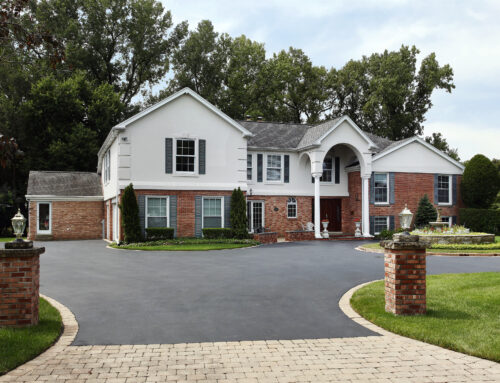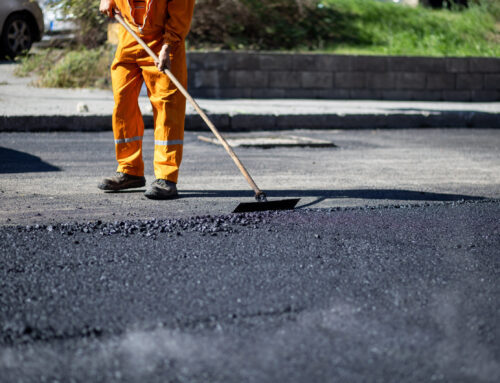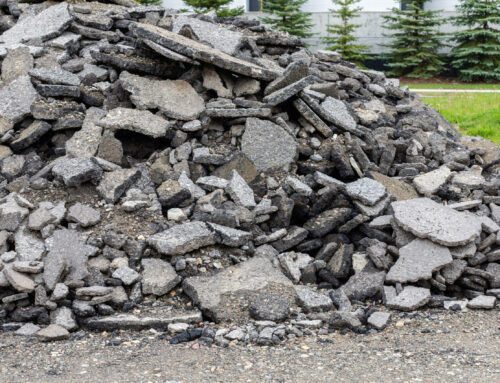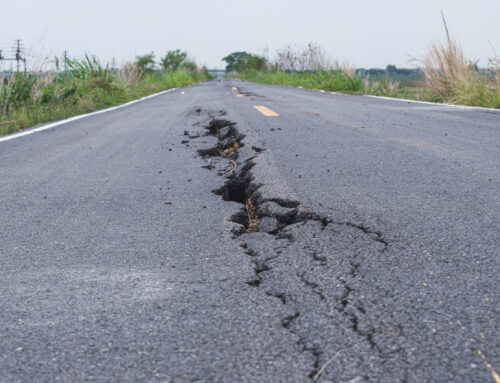Chip seal vs asphalt, what’s the difference? What surface is better? If you’re looking at getting a driveway or street surface paved, you may have come across chip seal as a possible pavement option. Here at Sunrise Asphalt, we happen to be experts at both (naturally) and so we are here to help you understand what exactly chip seal is and what the differences are between it and asphalt. Find out which surface is for you and more!
Chip Seal Vs Asphalt – Which is Better?
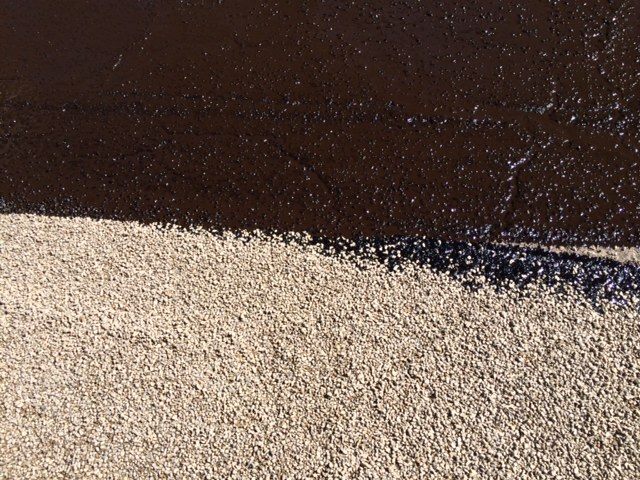 Before we start examining the difference between the two let’s examine exactly what each is. Last time we took a deep look at what asphalt is made of and some of the types of mixtures it’s used in. If you have any questions on that surface check it out and come back here!
Before we start examining the difference between the two let’s examine exactly what each is. Last time we took a deep look at what asphalt is made of and some of the types of mixtures it’s used in. If you have any questions on that surface check it out and come back here!
A less commonly known type of road surface is the chip seal.
Chip Seal
Chip seal, or oil and chip, is a method of pavement that goes back over 100 years! It’s been used to resurface driveways and parking lots or as a pavement surface all on its own in less trafficked areas, traditionally rural roads.
First, a thin base layer of hot tar or asphalt is distributed across the already existing pavement or prepared surface. On this, a layer of pea gravel is applied using a spreader box. The gravel is then pressed into the oil base using a roller to compact the oil and gravel into a singular paved surface.
If used as a top layer or resurfacing measure to asphalt, it helps keep the existing pavement in good condition though it does not provide much in the way of structural support.
How Does it Compare to Asphalt?
Chip Seal Pros
Chip seal naturally has a light gray color and can stay at a cooler temp in the desert heat, the light colored stones hold less heat from the sun. It can also be customized with different colored stone if that’s something you’re looking for! It can typically be less expensive than full-on paving and doesn’t require the same level of maintenance as, say, seal coating. The surface typically lasts between 5 – 8 years depending on the number of layers used, the slope of the road, and other factors.
Chip seal has a faster set time than asphalt as well, usually, a surface will need to be left alone for 12-24 hours for it to seal while an asphalt surface can take a couple of days before being ready for driving (and even longer for it to fully cure!)
While the chip seal is a very effective low-cost option for paving or road repair work, it does have some drawbacks.
Drawbacks of Chip Seal
Chip seal roads tend to have a surface that handles wear a bit rougher than asphalt, that typically will generate more road noise when driving at higher speeds. Anyone who is driven over an old country road knows the kind of noise we are talking about here. Of course, this can all fluctuate based on vehicle, tire tread, and other factors.
The rougher surface can also make snow removal more of a problem. Luckily for us in Tucson, this is rarely an issue!
Chip seal also has a shorter lifespan than traditionally paved asphalt roads before it needs maintenance, repair, or new layers of oil and gravel applied to it!
Regardless of the surface you decide on, whether asphalt or chip seal, Sunrise Asphalt are the professionals for you! Locally owned and operated in Tucson for over 40 years, we have the experience to deliver the best product to you. Give us a call, and let’s get paving!

